Post
A catch
Save a catch to start your fishing logbook. You will be able to to share it with the community if yo want!
A fishing trip
Post an ad to go fishing with other fishermen
Save a catch to start your fishing logbook. You will be able to to share it with the community if yo want!
Post an ad to go fishing with other fishermen
Share a thought, a question with the community
My favorite cities
×Join our 562 fishermen in Ravenshayes in Devon. The fishing forecast is currently 4.3. The most caught fishes here are the roach fish , the ide fish, the vendace fish and the silver bream. Come try the most famous fishing techniques like the tips on material to catch pollack with longline, fishing squid with jig on board, tips on material for sea bream throwing or float fishing (plug).
Our fishing forecast of Ravenshayes indicates the best time to go fishing in this city.
The Roach fish
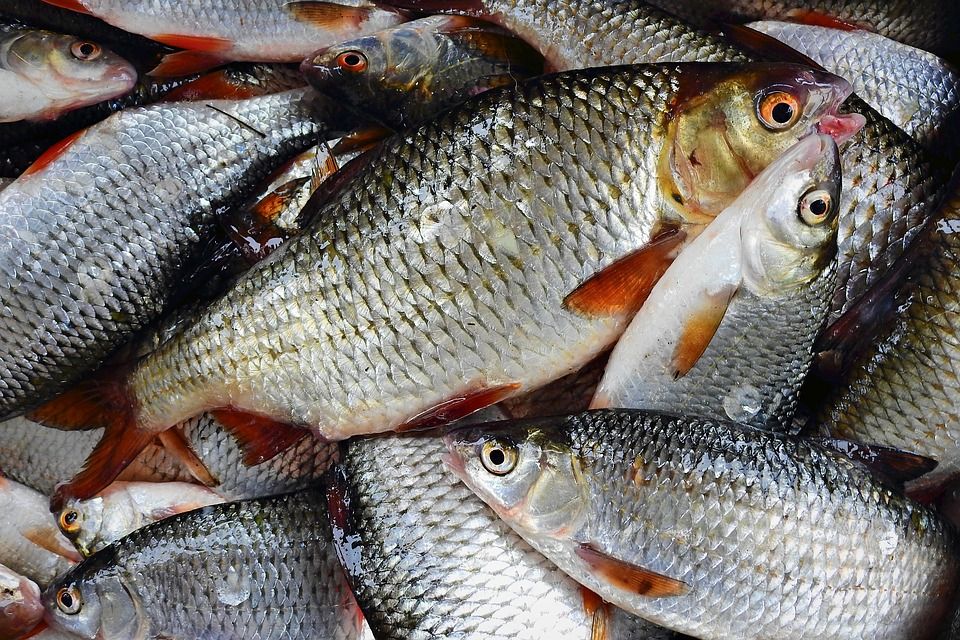
The Roach fish belongs to the Cyprinidae Family. The current size is 10 to 30 cm and the weight is 10 to 200 g. Some individuals can reach 50 cm for a weight of 2 kg. Life expectancy is about ten years (maximum 14 years). The breeding of the roach takes place from April to June/July. Fertility is 350000 eggs per kg of weight. It can be fished all year round. Roach is one of the most common and widespread fish in slow-moving lakes and rivers. It lives in schools of individuals of approximately the same size. These benches can be composed of hundreds of roaches. It is easily identifiable by the diver: the silvery appearance of his body, the eyes and red fins allow him to identify roaches and rotengles. A closer look at the position of the dorsal and ventral fins will then make the difference between the two species. If these two fins are upright, it is the roach.
The Roach fish is a famous fish you can catch in Ravenshayes.The Ide fish
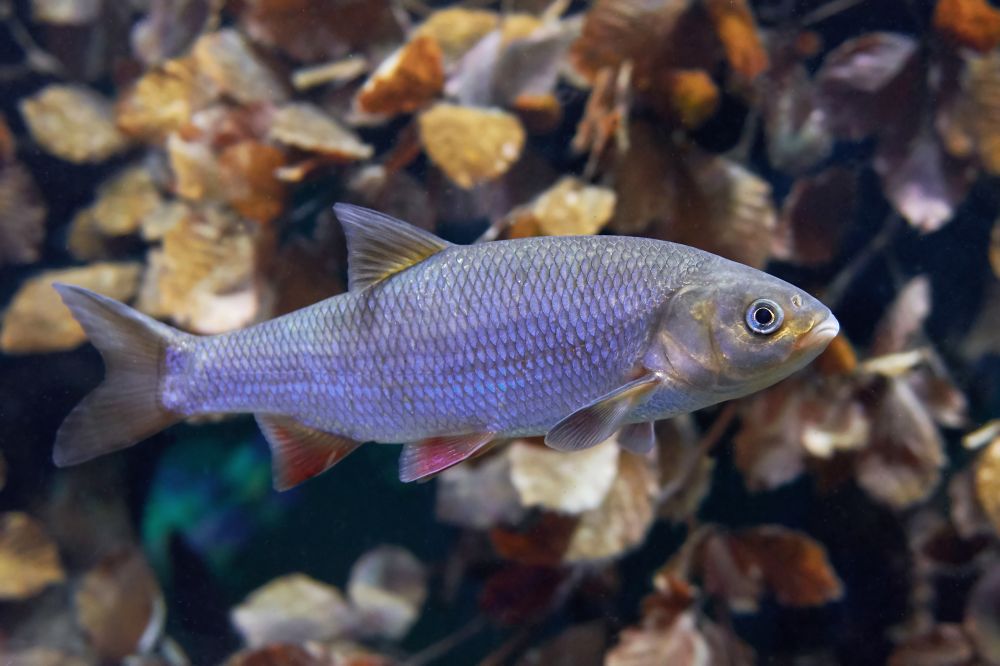
The Ide fish belongs to the Cyprinidae family. Its size is generally between 30 and 50 cm but this fish can reach a maximum length of 80 cm for a weight of 5 kg and an age of nearly 20 years. Spawning takes place from March to April. Females lay between 60,000 and 160,000 eggs. The fishery is open from June to March. The body is long and laterally compressed with a terminal mouth pointing upwards. The head is strong with a small mouth, obtuse snout and yellow eyes. The back is rounded. The anal fin has a concave rear edge. The back and upper part of the head are greyish-green to brown; the yellowish-brown flanks have silvery or golden reflections; the belly is whitish. The fins are dark except for the pelvic, ventral and anal fins which are frankly red. In older and larger specimens, the body color may turn yellow/bronze.
The Ide fish is a famous fish you can catch in Ravenshayes.The Vendace fish
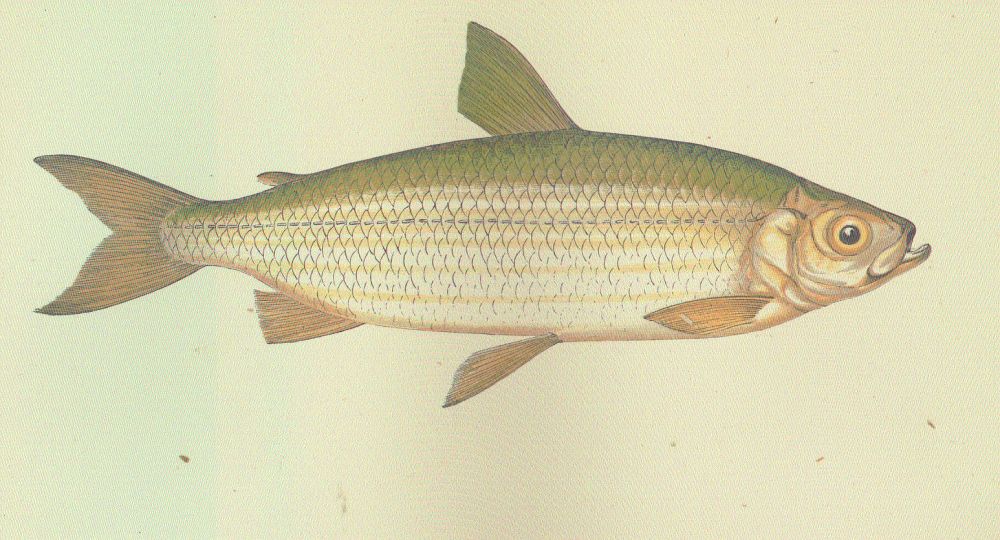
The vendace fish belongs to the Salmonidae family. Its average size is 45 cm and its weight is 1 kg. The oldest specimens observed were 10 years old. It breeds from October to December. The female lays 30,000 eggs per kg of weight. It is fished from March to December. The vendace is a small, slender and streamlined fish that is very easy to confuse with a bleak, a small lavaret whitefish or a peled whitefish. Unlike the bleak, the vendace is a member of the Salmonidae family, which is why it has a fat fin. It differs from the lavaret and peled whitefish by its much longer lower jaw. In the lavaret whitefish, the upper jaw is longer and in the peled whitefish the jaws are of the same length. It is silvery on the sides, with a white belly and a brown-green, grey-blue or blue-green back.
The Vendace fish is a famous fish you can catch in Ravenshayes.The Silver Bream
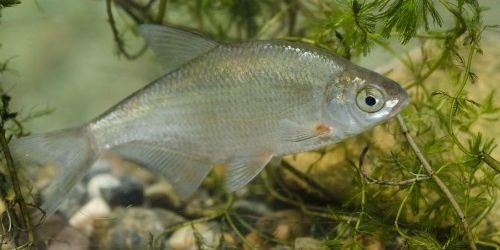
The Silver bream belongs to the Cyprinidae family. The usual size of the Silver bream is 20 to 30 cm and weighs about 200 g. The largest specimens can reach 35 cm. The life span of the Silver bream is about 10 years and it breeds from May to July. The female lays 20,000 to 60,000 eggs. It can be fished all year round. The Silver bream (Blicca bjoerkna) has a high, laterally flattened body, with a bushy back, characteristic of breams and accentuating with age. The head of this bream is small in relation to the size of its body but its eye is quite large, compared to its common cousin. Its snout is short and its mouth is oblique downwards, a characteristic common to fish seeking food on the bottom. The mouth is protractile (it unfolds forward) and free of barbells, surrounded by thick lips. The Silver bream is characterized by a long anal fin with between 22 and 26 rays, although shorter than the fresh water bream (26 to 30 rays). The dorsal fin of the Silver bream is short and high. The caudal fin is strongly indented. The Silver bream has a silvery coloring on the sides and belly, with a dark greyish-green or olive-colored back. The pelvic, pectoral and anal fins have an orange-red color. This last coloring can affect the whole stomach in older Silver breams.
The Silver Bream is a famous fish you can catch in Ravenshayes.The Rudd fish
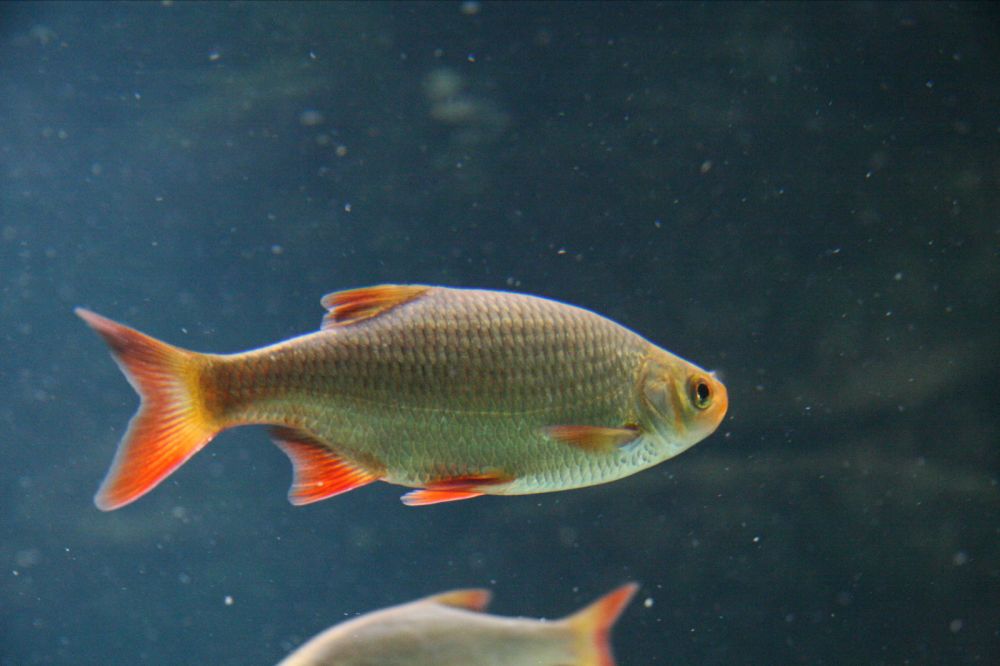
The Rudd fish belongs to the Cyprinidae family. The current size of the rudd fish is 15 to 30 cm for a weight of 0.5 to 1 kg. It can reach nearly 51 cm in height and weigh 2 kg. The rudd fish can live about 17 years. Egg laying is split and takes place from April to June. The female lays 100,000 to 200,000 eggs. Fishing for rudd is allowed all year round. It is easily identifiable by the diver: the silvery appearance of its body. A closer look at the position of the dorsal and ventral fins will then make the difference between the two species. If the ventral fins are placed further forward than the dorsal fin, it is the ratchet. The mouth, small, terminal, opens obliquely upwards. The back of the rattlesnake is brownish green, the sides and belly are silvery. The iris of the eyes is yellow with golden reflections. Dorsal, anal and pelvic fins are bright red in color.
The Rudd fish is a famous fish you can catch in Ravenshayes.Our fishing forecast of Ravenshayes indicates the best time to go fishing in this city.
Our fishing forecast of Ravenshayes indicates the best time to go fishing in this city.
Our fishing forecast of Ravenshayes indicates the best time to go fishing in this city.
